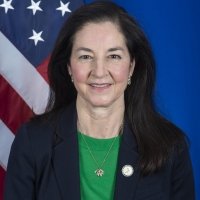The High Seas Treaty and Latin America’s Role in Marine Conservation
The High Seas Treaty, a historic agreement finalized in 2023 after decades of negotiations, will only go into effect after at least 60 countries have ratified it. So far, just Chile, Monaco, Palau, Belize, and the Seychelles have done so, though 88 countries signed the agreement, including the United States. The stakes are high; the treaty offers an opportunity to protect half of the planet’s surface and 95% of its oceans at a critical moment in the fight to reverse an accelerating biodiversity crisis. It is also a pillar of a broader campaign to protect 30% of the Earth’s land and seas by 2030.
Latin America and the Caribbean could be a leader in the treaty’s ratification and a trailblazer in creating marine protected areas in the high seas. The region is already a standout in marine protection in territorial waters, with several countries having met or exceeded the 30% target, including Chile, Costa Rica, and Panama. By quickly ratifying the High Seas Treaty and designating conservation areas beyond national jurisdiction, the region would bring the treaty to life, showcase its potentially transformational impacts, and attract greater international support for environmental protection in the Americas.
Please join the Wilson Center’s Latin America Program and Environmental Change and Security Program, in partnership with the Natural Resources Defense Council, to discuss the importance of the High Seas Treaty and its ratification and implementation, including the role of the United States and Latin America in supporting the creation of ambitious marine protected areas in the Western Hemisphere.
Speakers


Introductions


Moderator

Hosted By

Latin America Program
The Wilson Center’s prestigious Latin America Program provides non-partisan expertise to a broad community of decision makers in the United States and Latin America on critical policy issues facing the Hemisphere. The Program provides insightful and actionable research for policymakers, private sector leaders, journalists, and public intellectuals in the United States and Latin America. To bridge the gap between scholarship and policy action, it fosters new inquiry, sponsors high-level public and private meetings among multiple stakeholders, and explores policy options to improve outcomes for citizens throughout the Americas. Drawing on the Wilson Center’s strength as the nation’s key non-partisan policy forum, the Program serves as a trusted source of analysis and a vital point of contact between the worlds of scholarship and action. Read more


Environmental Change and Security Program
The Environmental Change and Security Program (ECSP) explores the connections between environmental change, health, and population dynamics and their links to conflict, human insecurity, and foreign policy. Read more


Polar Institute
Since its inception in 2017, the Polar Institute has become a premier forum for discussion and policy analysis of Arctic and Antarctic issues, and is known in Washington, DC and elsewhere as the Arctic Public Square. The Institute holistically studies the central policy issues facing these regions—with an emphasis on Arctic governance, climate change, economic development, scientific research, security, and Indigenous communities—and communicates trusted analysis to policymakers and other stakeholders. Read more

